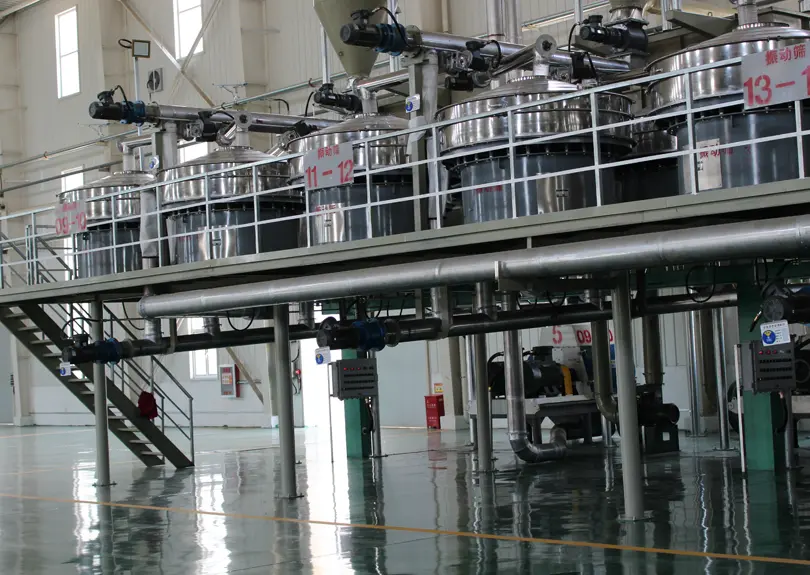
វិច្ឆិកា . 30, 2024 10:24 Back to list
Hydroxy Methyl Propyl Cellulose Applications and Properties in Modern Industry
Understanding Hydroxy Methyl Propyl Cellulose Properties, Applications, and Benefits
Hydroxy Methyl Propyl Cellulose (HMPC) is a water-soluble polymer derived from cellulose, which is a natural polymer abundant in plant cell walls. This compound has gained significant attention across various industries due to its unique properties and versatile applications. In this article, we will explore what HMPC is, its chemical characteristics, its applications in different fields, and the benefits it offers.
What is Hydroxy Methyl Propyl Cellulose?
HMPC is synthesized through the chemical modification of cellulose, where hydroxyl (-OH) groups in cellulose are substituted with hydroxypropyl and methyl groups. This alteration enhances its solubility in both cold and hot water, making it an excellent thickening, binding, and stabilizing agent in various formulations. The percentage of hydroxypropyl and methyl groups can be adjusted during synthesis, allowing for tailored properties suitable for specific applications.
Chemical Properties
One of the most notable attributes of HMPC is its high viscosity at low concentrations, which makes it economically advantageous in formulations. Depending on its molecular weight and the degree of substitution, HMPC exhibits a wide range of viscosities, enabling it to function effectively in different contexts. It is pH-stable and retains its viscosity across a broad pH range, making it suitable for diverse chemical environments.
Moreover, HMPC is non-ionic, meaning it does not carry a charge, which prevents it from interacting undesirably with other charged compounds in a solution. This characteristic is especially beneficial in a variety of applications, where maintaining the integrity and functionality of the formulation is essential.
Applications of Hydroxy Methyl Propyl Cellulose
HMPC is widely used in the pharmaceutical sector as an excipient in tablet formulations. It acts as a binder and a disintegrant, helping to ensure that the tablets dissolve properly when ingested. Additionally, it is utilized in controlled-release formulations, where it helps modulate the release of active pharmaceutical ingredients (APIs) over an extended period.
hydroxy methyl propyl cellulose

2. Cosmetics and Personal Care
In the cosmetics industry, HMPC serves as a thickening agent in lotions, creams, and other personal care products. Its water-retaining properties make it an ideal ingredient for moisturizing formulations, ensuring that skin hydration is maintained. Furthermore, it enhances the texture and spreadability of products, making them more appealing for consumers.
3. Food Industry
HMPC is recognized as a safe food additive, functioning as a thickener, stabilizer, or emulsifier in various food products. It improves the texture and mouthfeel of food items, offering a creamy consistency. Its ability to form gels and retain moisture also makes it a valuable ingredient in sauces, dressings, and dairy products.
4. Construction Materials
In the construction industry, HMPC is utilized in cement and mortar formulations to improve workability and extend the open time of these materials. Its water-retention properties contribute to better adhesion and bonding, enhancing the overall quality of construction projects.
Benefits of Hydroxy Methyl Propyl Cellulose
The use of HMPC provides numerous benefits across its applications. It enhances the stability and shelf-life of products, ensuring that they maintain their desired properties over time. Its non-toxic and biodegradable nature makes it an environmentally friendly choice for many formulations. Additionally, the versatility of HMPC allows formulation scientists and manufacturers to create tailored solutions that meet specific requirements, whether in pharmaceuticals, cosmetics, food, or construction.
Conclusion
Hydroxy Methyl Propyl Cellulose is a remarkable compound that showcases the interplay between chemistry and practical application in everyday products. Its unique properties enable it to serve diverse roles across multiple industries, improving product performance and consumer satisfaction. As research continues to reveal new insights into the capabilities of HMPC, its importance in modern formulations is expected to grow, paving the way for innovative solutions that leverage its many benefits. Whether in enhancing the efficacy of medications, improving the texture of personal care products, or providing stability in food formulations, HMPC stands out as a versatile and valuable component in the formulation landscape.
-
tile-bonding-additives-for-stronger-bonds
NewsAug.22,2025
-
construction-grade-rdp-for-wholesale-needs
NewsAug.22,2025
-
trusted-hec-supplier
NewsAug.22,2025
-
HEC Solutions for Industrial Excellence
NewsAug.22,2025
-
Construction Additives Need HPMC Essentials
NewsAug.22,2025
-
HPMC Versatile Cellulose Ether for Industries
NewsAug.22,2025







